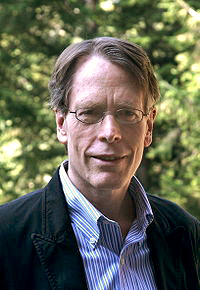| Sun | Mon | Tue | Wed | Thu | Fri | Sat |
|---|---|---|---|---|---|---|
| 1 | 2 | 3 | 4 | 5 | ||
| 6 | 7 | 8 | 9 | 10 | 11 | 12 |
| 13 | 14 | 15 | 16 | 17 | 18 | 19 |
| 20 | 21 | 22 | 23 | 24 | 25 | 26 |
| 27 | 28 | 29 | 30 | 31 |
CATEGORIES
RECENT ENTRIES
BLOG ROLL
Serious inquiries only
When applying to college in 2006, I wrote one of my short-answer essays on how “serious” a school Chicago is. At the time, I didn’t really know what that meant, and I didn’t really know if it was true. Last week’s International Symposium on Mathematical Programming (ISMP) provided further evidence that the University of Chicago takes that “serious” descriptor very seriously.
 The event, a conglomerate of the world’s foremost mathematical minds, focuses on programming for optimal decision-making. On the practical level, that means how much fuel a car’s internal computer decides to use at a given time or how an airline prices each seat. Last week was the symposium’s 20th incarnation—it takes place once every three years—and, in addition to Chicago Booth’s sponsorship, it has deep Hyde Park roots.
The event, a conglomerate of the world’s foremost mathematical minds, focuses on programming for optimal decision-making. On the practical level, that means how much fuel a car’s internal computer decides to use at a given time or how an airline prices each seat. Last week was the symposium’s 20th incarnation—it takes place once every three years—and, in addition to Chicago Booth’s sponsorship, it has deep Hyde Park roots.
Advertised as the “60th Anniversary of the Zero-th Mathematical Programming Symposium,” the event celebrated the 1949 Activity Analysis of Production and Allocation meeting organized by University of Chicago researchers. Before that conference, few outside the military had heard of George Dantzig’s simplex method, an algorithm for solving linear-programming problems that allows for resource optimization.
Tjalling Koopmans, then a member of the University’s Cowles Commission for Research in Economics, planned that first meeting around Dantzig’s simplex method, bringing a group of 49 mathematicians, economists, and government workers to Hyde Park to discuss the algorithm’s implications. Most of the attendees had UChicago ties, and all five future Nobel laureates at the conference were associated with the University. Paul Samuelson, AB’35, who won the Nobel Prize for economics in 1970, presented on economic sustainability, while Herbert Simon, AB’36, PhD’43, the 1978 Nobel recipient, discussed technological change in a linear model.
Since then the ideas behind the symposium have remained mostly the same, focusing on optimization methodology, advances in the field, and applications across math, economics, and government. This year, Stephen P. Boyd of Stanford University was the week’s first plenary speaker, talking about Real-time Embedded Convex Optimization, while Berlin University’s Martin Skutella discussed network flows in Flows Over Time: Classical and More Recent Results.
I attended a talk by Lars Peter Hansen (shown above), the Homer J. Livingston distinguished service professor in economics, on Valuation in Dynamic Stochastic Economies, which examined long-range economic models. Again, I was reminded of my college entrance essay: as a humanities person, I’m not quite sure what “dynamic value decomposition” is, but I know it’s serious.
Jake Grubman, ’11
September 1, 2009
